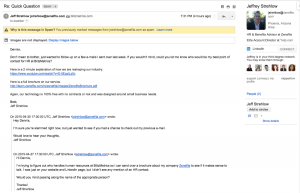By Reshma Saujani and Carol Juel
Driven by persistent inflation and fears of a looming recession, employers are slashing their budgets, with many opting to cut the exact employee benefits that would help moms who were disproportionately driven out of the workforce during the pandemic. A recent survey from the Society for Human Resource Management found that the number of employers offering paid maternity leave beyond what is required by law dropped from 53% in 2020 to 35% this year. By reneging on things like flexible work and childcare, employers are making it plain: Retaining and advancing women is simply not a priority for them.
Asking moms to return to the status quo after the stress and trauma of the last few years is unacceptable. Women held this country together while working full-time jobs and struggling to make ends meet without the benefits of universal childcare, paid leave, and more; legislation to provide them stalled in Congress.
It doesn’t have to be this way. But for things to change, we must fundamentally transform the way the workplace operates to better support women and working mothers. As a society, we can’t keep perpetuating the belief among women that to have it all, they must do it all; or that they must choose between having a family or career, or sacrifice their financial and mental health to have both.
Moms understand this, even if nobody else does. Without childcare, we can’t work. And we struggled with this issue long before the pandemic—it just made things even worse for us. To be clear, the historic job losses women faced during the height of the pandemic, with millions of moms driven out of the workforce, were primarily because of the inflexible, unsupportive nature of many traditional workplaces.
It all boils down to this: Many workplaces were not built with women, especially moms, in mind.
This is why childcare is as much of a business and infrastructure issue, as it is a personal problem for which 40% of parents are now going into debt. With thousands of childcare centers closed, and nearly 100,000 fewer care workers still working in the field today, the crisis will only worsen without swift, decisive action from leaders in the private sector and the government.
The private sector needs to act
That is why, in the absence of federal action, the private sector must meet this moment by providing childcare support to every employee, hourly and salary alike, across the economy. If business leaders fail to help the millions of American workers struggling to find childcare solutions, they risk losing even more top talent and undermining the nation’s economic health and competitiveness.
According to a new report by Lean In, the number of women leaving their employers is the highest it’s been in five years, even with the slowing job market. And a Moms First (formerly Marshall Plan for Moms) study released earlier this year found that 45% of moms cited childcare expenses as the reason they left the workforce, and that childcare benefits are a top factor for moms deciding whether to stay with their employer or switch jobs. Employers have the power to help their employees now, and doing so will increase retention and loyalty which will improve the bottom line.
There are many examples of companies succeeding at making employee support part of their business infrastructure, such as Patagonia. In addition to offering 16 weeks of paid maternity leave, Patagonia also offers onsite childcare. Or Synchrony, which expanded childcare solutions during the pandemic to better support its 18,000+ member workforce, the majority of whom are women and hourly employees.

Forming a national coalition for childcare solutions
These industry leaders, along with Adecco, Archewell, Athletes Unlimited, Etsy, Fast Retailing, Gibson Dunn, Harvard University, Kirkland & Ellis, Olo, and others are members of the Moms First National Business Coalition for Child Care. This coalition is increasing access to childcare solutions for workers across the economy and demonstrating how employers of all sizes—from Fortune 500 companies to early-stage startups to mom-and-pop shops—have a role to play when it comes to tackling the systemic inequalities in the workplace.
Moms can’t afford to go back to the status quo, and neither can our economy. Rebuilding work to meet the needs of women, especially moms, will not only help everyone but also demonstrates companies’ commitment to their employees. It will create growth opportunities for women to advance and help retain employees, even in a volatile economy.
There’s still more work to do. It’s time for the private sector to recognize that providing equitable childcare solutions, establishing paid leave for all employees, and guaranteeing equal pay are not simply “women’s issues.” They are business issues. Working to resolve them immediately will build a more resilient economy and help finish the fight for women’s equality. It will push our culture to value women, support moms, and enable their advancement.
We have a once-in-a-generation opportunity to make real change that will transcend the private sector and government policy and ultimately transform American life. Only when we commit ourselves to moving forward, rather than going back, can we create a world that will allow women to truly have it all.
Reshma Saujani is the founder and CEO of Moms First, founder of Girls Who Code, and the best-selling author of Pay Up: The Future of Women and Work (and Why It’s Different Than You Think). Carol Juel is executive vice president and chief technology and operating officer of Synchrony and board chair of Girls Who Code.
(7)
Report Post







